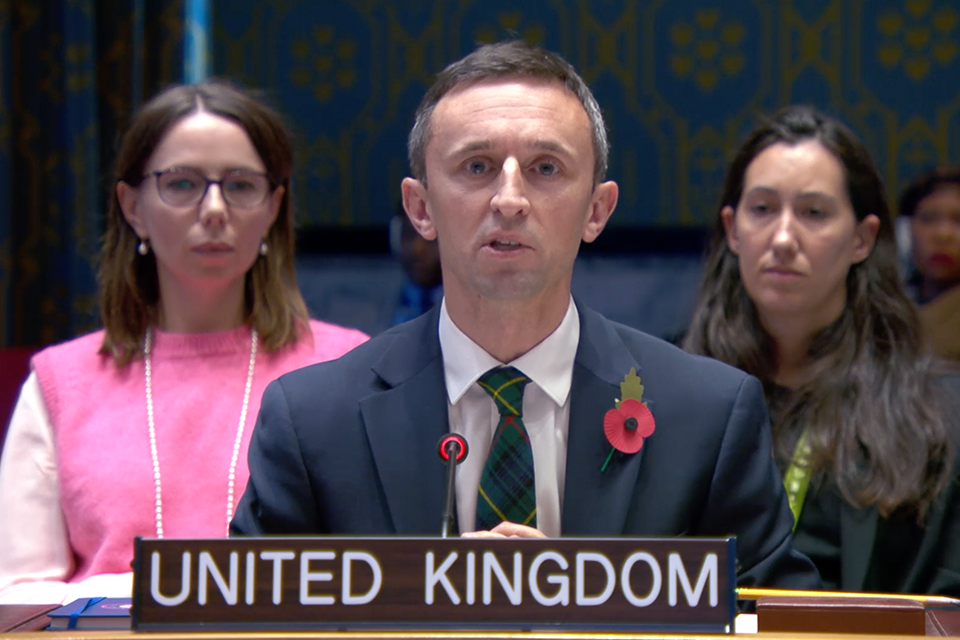There is still much more to be done to address accelerating climate change impacts: UK statement at the UN Security Council
Statement by Ambassador Archie Young, UK Deputy Permanent Representative to the UN, at the UN Security Council meeting on climate and security.

Since the first Security Council discussion on this topic in 2007, there has been real progress in tackling climate change, in tackling nature loss, in adapting to climate impacts and in integrating peace and security into those efforts. But there is still much more to be done.
Climate change is accelerating: intensifying extreme weather events, disrupting ecosystems, threatening lives and livelihoods. We see this in all corners of the globe.
These impacts bring extreme and slow-onset devastation and degradation: not just the droughts and floods we see on the news, but the long-term food insecurity, water scarcity, loss of homes, in turn driving displacement and fuelling tensions.
These impacts are most severe in places that are already vulnerable, compounding and exacerbating existing fragilities. Pushing communities into cycles of displacement and violence. With women and children often the most affected.
As we’ve heard today very clearly, conflict in turn compounds the climate crisis: destroying ecosystems and infrastructure, weakening institutions, diverting resources away from climate resilience.
And just as the challenges are interrelated, so too are the responses. That means three priority actions:
First, strengthening analytics and early warning systems to better anticipate climate-conflict risks, where these contribute meaningfully to peace and security outcomes. This is why the UK is supporting initiatives like the UN Complex Risk Analytics Fund.
Second, ensuring the UN integrates climate risk assessments and environmental stewardship into its operations on the ground, especially in peacekeeping missions. The UK welcomes the role of the Climate Security Mechanism (CSM) in supporting the UN system in driving these efforts forward. We also welcome the efforts of some peacekeeping missions to use renewable energy, limit their environmental footprint, and strengthen local resilience, which in turn empowers local communities and equips them for the future.
Third, mobilising funding from all sources to address climate and nature risks to build sustainable peace. Since 2011, the UK’s International Climate Finance has not just helped reduce emissions, it has also supported 137 million people cope with the effects of climate change, given 89 million people improved access to clean energy, improved the resilience of 33 million people, plus many more through technical assistance. And by doing so, it has helped to address the drivers of conflict around the world.